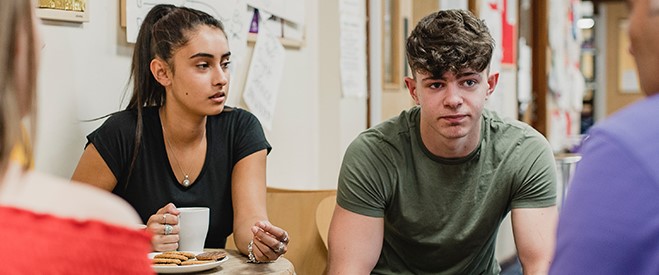Educational psychology – parents
Educational Psychologists (EPs) are professional psychologists with specialist training in child development, how children learn, their emotions, behaviour and how environments affect learning. They work closely with parents and carers, Early Years settings, schools and colleges to help children and young people aged from 0-25 who might be having difficulties with:
Learning
Children/young people (CYP) can have difficulties progressing across the curriculum due to a combination of factors. In partnership with key staff and parents/carers, the EP would take a holistic view to consider all of those factors, alongside the CYP’s response to well-founded interventions and targeted support. More specific learning skills considered might include reading, writing and spelling fluency, retention and recall of teaching (memory skills), problem-solving skills (reasoning), organisation, attention and ability to transfer learning from one area to another e.g applying rote learnt timetables to solving number problems. See Guide to EP Casework.
Managing emotions
EPs are interested in the connection between a young person’s thoughts, feelings and behaviours. They can apply psychological models and tools to collaboratively explore and plan attuned support with key adults and the children/young people (CYP) themselves. When EPs discuss emotional states with CYP, they might define them as feeling sad, angry, scared, worried, surprised, calm, happy, confused, angry or bored. In this area the EP would consider how a young person is supported to express and manage their feelings before they become overwhelmed at school/college.
Confidence and motivation
In this area EPs are curious about how a child/young person perceives their strengths, what they feel they can do and how they are respected by others as unique individuals. EPs might explore how a young person experiences and attributes success in their lives, the level of independence they have over their learning in order to feel self-satisfaction and their sense of belonging to their peers and others.
Communication and friendships
When thinking about communication skills, EPs will consider a child/young person’s (CYP) expressive (spoken) and receptive (understanding) language skills alongside their social communication skills, such as gaining attention from others, understanding non-verbal cues, active listening and engagement in a reciprocal conversation. Maintaining authentic friendships can be a very important part of school and college life, so EPs may be curious about a CYP’s ability to negotiate, compromise, empathise, show patience and resolve disagreements.
The aim of the EP is to ensure the young people of Southampton have the equality of access and opportunity they need to flourish within education and beyond. EPs work together with you, your child, and their school or college to help plan a positive way forward.
All Southampton schools and colleges are linked to an EP (or a supervised trainee EP). Parents or carers should contact the Special Educational Needs Co-ordinator (SENCo) at their child’s school or college to raise concerns.
All EPs must be registered with the Health and Care Professions Council.


How it works
1 Step one – Request SHOW
2 Step two – Psychological consultation SHOW
3 Step three – Action planning SHOW
4 Step four – Review meeting SHOW
More resources
Find more information:
Or view the other Education and school services.
Contact us
Fill out our form to submit an Educational Psychology enquiry. XXXX???XXXX





